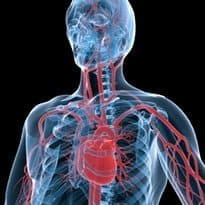A specialist telehealth project run by Gloucestershire Care Services NHS Trust has increased capacity by ten patients per nurse.
Speaking at the King’s Fund’s annual Telehealth and Telecare Congress, Adrian Strain, clinical nurse specialist in heart failure and specialist telehealth lead at the trust, said the project supports the case management of patients by its community heart failure and respiratory teams.
“Our model has been nurse led from the outset. We install our own kit, manage the data and act on it as we see fit,” he said.
“In heart failure, the capacity has gone up with about ten more patients per nurse. We also avoided 53 admissions last year in heart failure.”
Patients are given monitors supplied by Doboco, which they can use to measure vital signs such as blood pressure, heart rate, oxygen levels and weight. The data is transmitted to a central computer service for review by a specialist nurse.
“We use telehealth as a tool to support nursing intervention. Every 13 weeks we review and see of the kit should still be in there. We got about 90 in each service at any given time,” said Strain.
The first deployment in 2008 consisted of 72 monitors in total; 60 for heart failure patients and 12 for COPD patients. However, after successful results, the trust increased the number of monitors to 197. The project is now a mainstreamed service.
“For both heart failure and respiratory services, we have had increased efficiencies, larger case loads, and avoided admissions. I believe it’s been very cost effective,” Strain said. “My quick calculations are that we’ve saved £399,744 on admissions.”
He added that through patient satisfaction and quality of life surveys, the trust had demonstrated that patients were accepting of telehealth and that they had learned more about the self-management of their condition.
Gloucestershire also runs a separate large scale telehealth project in partnership with Tunstall Healthcare.
The project was set up in 2011 to deliver telehealth to more than 2,000 patients with chronic obstructive pulmonary disease, chronic heart failure, chronic heart disease and diabetes.
However, a year after the £5m project was launched EHI reported that only 454 devices had been deployed.
Last month, that number had risen to 750. The BBC reported that some GPs had called the project an "absolute waste of money.”

